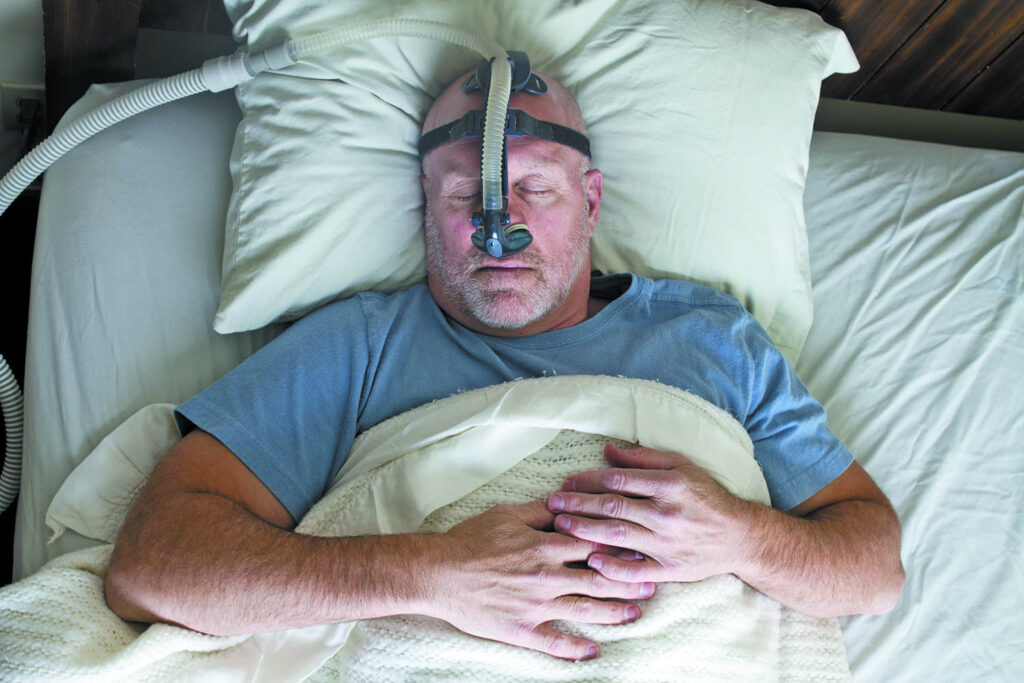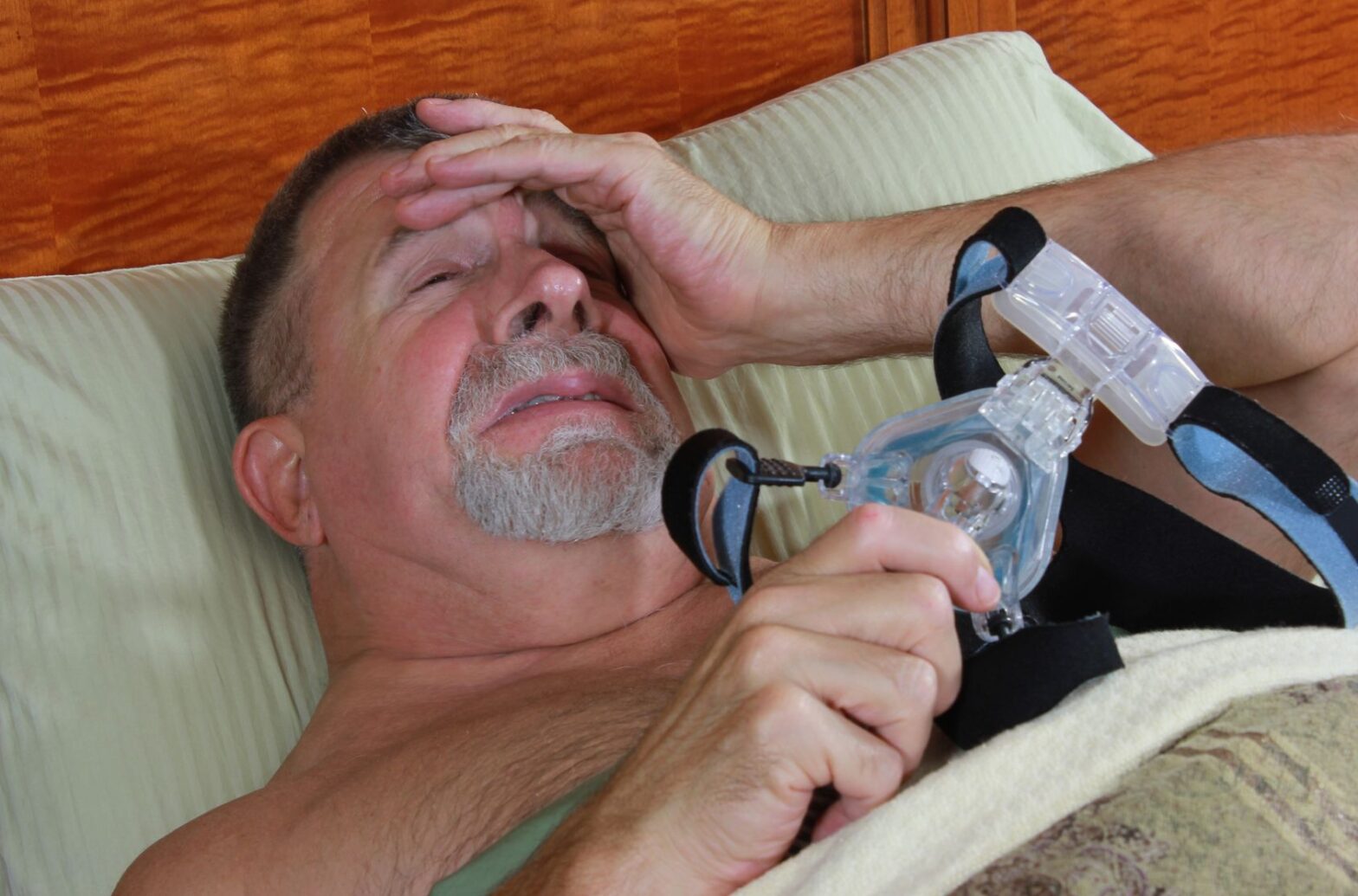While anybody may acquire obstructive sleep apnea, according to MedlinePlus, several variables might raise your risk for developing it or make it more probable that you currently do:
Obesity
Carrying too much weight is the most frequent risk factor for obstructive sleep apnea. According to some studies, as many as 40% of obese adults may suffer from sleep apnea. Click here to get more risk factor of obstructive sleep apnea.
Neeraj Kaplish, MD, the director of sleep laboratories and a clinical associate professor of neurology at the University of Michigan in Ann Arbor, specializes in sleep medicine. He says that fat deposits around the tongue and palate, in the neck, and in the areas surrounding these areas narrow and tighten the airway. When you’re laying down to sleep, it becomes considerably more [locked up].” (It should be mentioned that not all persons who are overweight have the disorder. Thin people may also have obstructive sleep apnea.)

Large Tonsils or Adenoids
Smaller airways or big tonsils or adenoids in certain individuals might make it difficult to breathe when sleeping. According to Ronald Chervin, MD, director of the Sleep Disorders Centers and professor of sleep medicine and neurology at the University of Michigan in Ann Arbor, large tonsils and adenoids are the most frequent causes of obstructive sleep apnea in children.
Size or Alignment of the Jaw
According to Robson Capasso, MD, chief of sleep surgery and associate professor of otolaryngology and head and neck surgery at Stanford University School of Medicine in California, certain conditions or genetic factors can result in an imbalance in facial structure that can cause the tongue to sit further back in the mouth and cause sleep apnea.
Obstructive sleep apnea may be caused by a variety of factors, such as a lower jaw that is shorter than the upper jaw or a palate (the roof of your mouth) that is formed in a certain manner and collapses more readily as you sleep.
An Apneic Sleep Disorder in the Family
You may be more likely to develop the problem if obstructive sleep apnea runs in your family. Your cranial facial features and the way your airway is structured may be inherited from your family, which may affect whether or not you develop sleep apnea.
Blood pressure is high (Hypertension)
The Sleep Foundation points out that as untreated sleep apnea may lead to hypertension, those who have hypertension are more likely to develop obstructive sleep apnea.
Your body’s oxygen levels drop when you aren’t breathing correctly, and your brain sends an adrenaline signal to instruct your body to constrict your blood vessels so that more oxygen can reach your heart and brain. While this adrenaline rush persists throughout the day, even when the individual is breathing properly, hypertension might develop.
Diabetes
According to a 2019 research in the journal Diabetes Care, those with type 2 diabetes had a 48 percent higher likelihood of being diagnosed with obstructive sleep apnea than people without the condition.
Obesity or being overweight may be related. The researchers point out that although inflammation brought on by apnea may also raise risk for diabetes, insulin resistance in diabetes may also independently increase risk for apnea.
While there are still many unsolved concerns about how sleep apnea may affect type 2 diabetes (or vice versa), findings from a study published in November 2017 in Chest revealed that sleep apnea often goes undetected in individuals with type 2 diabetes.
Therefore, if you have type 2 diabetes, it’s a good idea to be on the lookout for indicators of sleep apnea as well. According to previous studies, if left undiagnosed and untreated, sleep apnea might make it harder to control your diabetes.
According to James Rowley, MD, professor of medicine and division head of pulmonary, critical care, and sleep medicine at Wayne State University School of Medicine in Detroit, “upwards of three-quarters of persons with diabetes have sleep apnea.”

Stroke
According to Dr. Chervin, sleep apnea and stroke are related, but it’s unclear which is the root cause of the other. According to Chervin, “up to 75% of stroke patients have sleep apnea, and sleep apnea also increases the risk for stroke.” According to the American Heart Association, sleep apnea may be brought on by a history of stroke, but vice versa is also true.
Low oxygen levels and high blood pressure brought on by sleep apnea enhance a person’s chance of having a future stroke.
Nasal congestion
No of the source, people are more prone to develop obstructive sleep apnea if their nasal congestion persists at night. This is presumably because their airways are constricted.
Smoking
Obstructive sleep apnea is more likely to occur among smokers. Smoking causes inflammation in the upper airways, which may impact breathing and the efficiency with which the brain interacts with the respiratory muscles.
Alcohol
Alcohol consumption may make the muscles and tissue in the mouth and throat more relaxed, which increases the risk of obstructive sleep apnea.
Obstructive sleep apnea risk has been linked to asthma, according to asthma research.
According to the data, those who have asthma are more prone to develop sleep apnea. Additionally, symptoms of one ailment, particularly those that are not well controlled, might exacerbate symptoms of the other condition. Asthma and sleep apnea are related in a reciprocal manner, according to Chervin: “Asthma may make sleep apnea worse and sleep apnea can make asthma worse.”
Heart disease
People with heart failure may have both central and obstructive sleep apnea, according to previous study.
It’s possible for heart failure to lead to salt and water retention, and physicians worry that the extra fluid may enter the lungs at night and induce obstructive apnea. The respiratory control system seems to be affected by heart failure, which may contribute to central sleep apnea.
Brain infection, brain tumor, stroke, spinal conditions, or other issues that might impact the brain stem The chance of developing central sleep apnea may rise in conditions that affect the brain stem, which regulates breathing.
Drugs, such as opioid painkillers According to Dr. Capasso, benzodiazepines and opioids have the ability to dull the neurological connection that takes place between the brain and body to control respiration. As a consequence, these medications lessen the activation of the airway muscles, which may help cause sleep apnea.
Age and Gender
While sleep apnea may happen at any age, according to Dr. Kaplish, having a male gender and becoming older both raise your chance of acquiring the condition. We don’t really know why, although hormones and fat distribution may be involved. For instance, as we age, the neck and the area surrounding the tongue may develop more fatty tissue.
More To Read: These 6 simple remedies can alleviate sleep apnea
